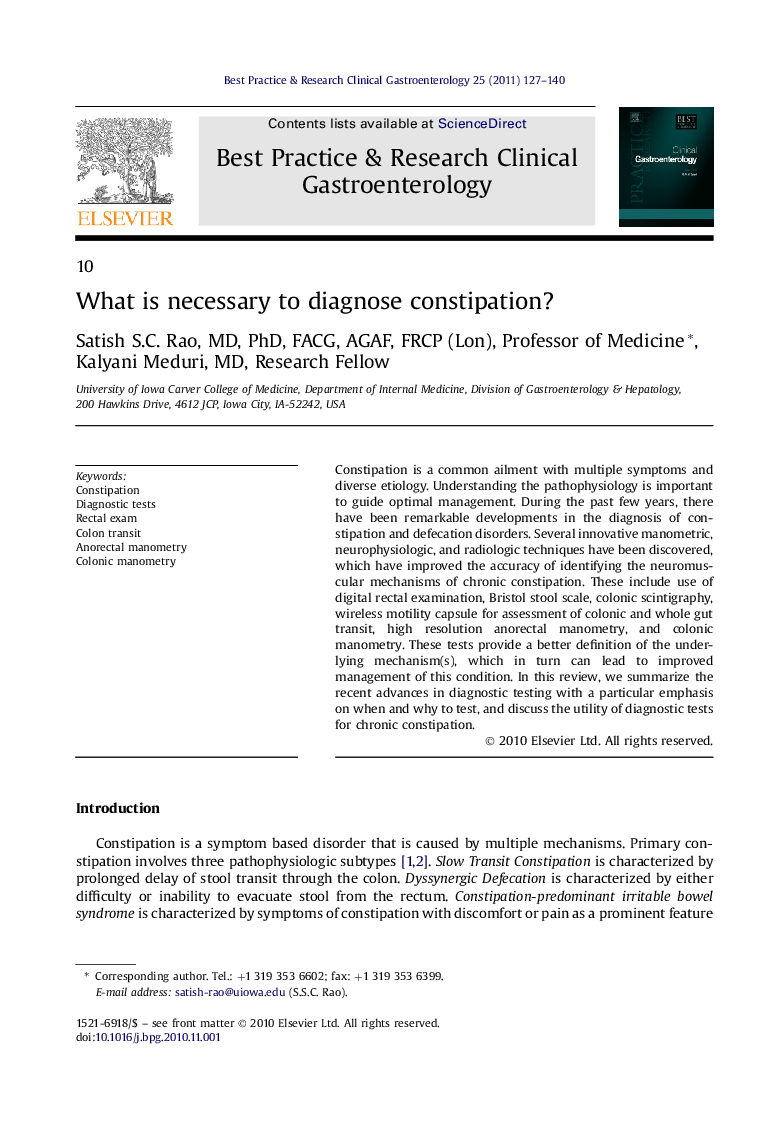| Article ID | Journal | Published Year | Pages | File Type |
|---|---|---|---|---|
| 6086474 | Best Practice & Research Clinical Gastroenterology | 2011 | 14 Pages |
Constipation is a common ailment with multiple symptoms and diverse etiology. Understanding the pathophysiology is important to guide optimal management. During the past few years, there have been remarkable developments in the diagnosis of constipation and defecation disorders. Several innovative manometric, neurophysiologic, and radiologic techniques have been discovered, which have improved the accuracy of identifying the neuromuscular mechanisms of chronic constipation. These include use of digital rectal examination, Bristol stool scale, colonic scintigraphy, wireless motility capsule for assessment of colonic and whole gut transit, high resolution anorectal manometry, and colonic manometry. These tests provide a better definition of the underlying mechanism(s), which in turn can lead to improved management of this condition. In this review, we summarize the recent advances in diagnostic testing with a particular emphasis on when and why to test, and discuss the utility of diagnostic tests for chronic constipation.
